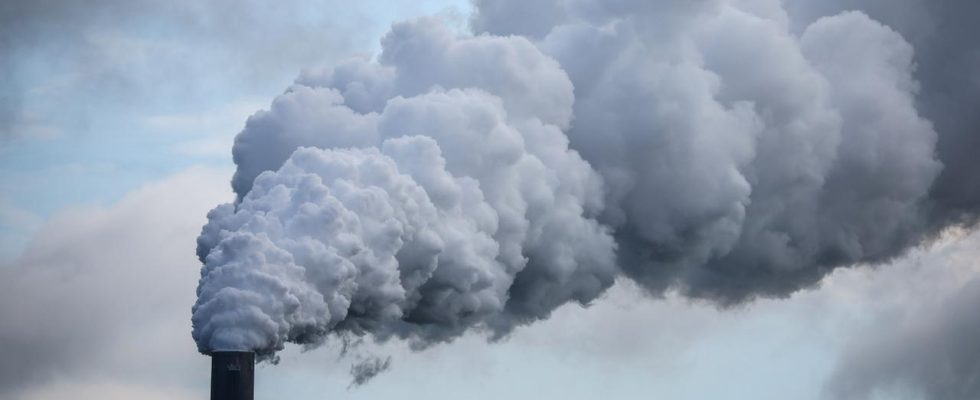Greenhouse gas emissions in Germany have unexpectedly fallen significantly. This is shown by a preliminary evaluation by the Agora Energiewende think tank. But that is only partly good news.
673 million tons of greenhouse gases were emitted in Germany last year. That is 10 percent less than 2022 – and 46 percent less than 1990, which is usually used as a reference year for the decline. It is a record low, but the experts at Agora Energiewende only rate it cautiously positively. This is due to the reasons for the decline.
What is positive is that more renewable energy from wind and solar was used. In addition, demand for electricity in Germany fell last year – and less electricity was exported to other countries. Accordingly, less climate-damaging coal was burned in German power plants.
Main reason: Bad Economic situation
However, this is only apparently positive. “In principle, Germany is on the right track. But of course the numbers should also be viewed with a certain degree of caution,” comments FDP parliamentary group vice-president Lukas Köhler.
Firstly, Germany has imported more electricity from other countries, including nuclear power. And secondly, according to Agora, the reduced demand is largely due to the fact that the industry had fewer orders last year due to the crisis. Energy-intensive production fell by eleven percent, the overall economy by only 0.3 percent.
Industry representatives point out that part of the production has been relocated – that is, the emissions of CO2 equivalents that were saved in Germany must at least partially be added to this in other countries. A zero-sum game.
What are CO2 equivalents?
In order to be able to compare the effects of different greenhouse gases, calculations are made in the CO2 equivalent unit. It expresses the climate impact of different greenhouse gases in comparison to that of carbon dioxide.
In addition, this decline is also not very sustainable. This means: If the economy goes up, greenhouse gas emissions will probably also go up. Agora Energiewende assumes that only around 15 percent of the savings last year can actually be attributed to climate protection measures and are therefore permanent.
Hardly any change in traffic and construction
Aside from energy and industry, the figures presented by Agora Energiewende are also hardly cause for celebration. Emissions in agriculture have only fallen slightly.
In the transport sector, emissions fell by just two percent compared to 2022. And in the building sector, greenhouse gas emissions only fell slightly, which was mainly due to the fact that private households continued to save gas and needed less heating overall due to comparatively mild temperatures. Nevertheless, the construction sector, just like transport, continues to miss the targets it has set – once again.
The Ministry of Construction says it is clear that there is a lot of catching up to do. “That’s why we only promote climate-friendly new construction, promote the purchase of existing buildings by families and support the conversion of offices into apartments,” said a spokeswoman. There is also mandatory heat planning: “Heat planning is the basis for phasing out fossil fuel heating and will help save CO2.” However, such measures may help in the long term, but no savings can be expected in the short term.
Secure industry, keep CO2 emissions low
The think tank’s demand: The federal government must take appropriate measures this year. “We need measures to secure the industrial location and, above all, a coherent overall concept for transport. Overall, all of this can only work if the financing of the transformation is placed on a stable and reliable basis,” says Agora director Simon Müller. He is referring to the controversial federal budget, which still has to go through the Bundestag this year.
FDP politician Köhler sees it similarly: “It is important that we ensure that the industry now invests in efficient energy, but above all in new machines, so that production increases again and at the same time CO2 emissions remain low.” He points to a new law that is intended to make investments more attractive because they can be written off more easily. However, the so-called Growth Opportunities Act is still stuck in the Mediation Committee because the Federal Council has vetoed it.
Agora Energiewende is a think tank financed primarily by private donations and public donations. According to the company, no donations are accepted from companies. The Agora Council includes representatives from science, federal politics, the Federal Network Agency, environmental associations and the energy industry.
Christopher Jähnert, ARD Berlin, tagesschau, January 4th, 2024 5:28 a.m

